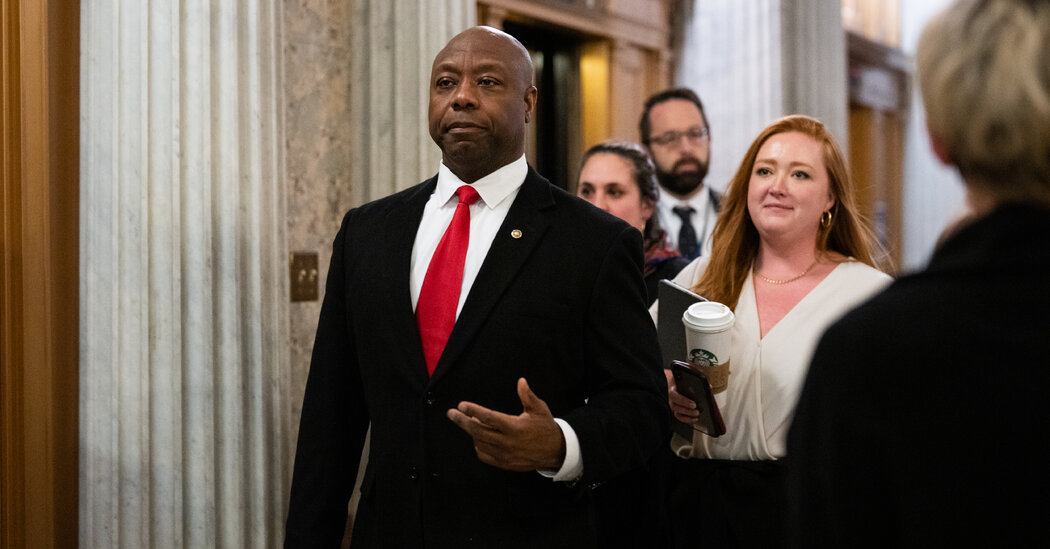
WASHINGTON — The Senate unanimously approved a bill that would make lynching a federal hate crime, explicitly criminalizing a heinous act that has become a symbol of the nation’s history of racial violence.
It was a remarkable moment after more than a century of failed attempts. The historic bill carries the name of Emmett Till, the 14-year-old Black boy tortured and murdered in Mississippi in 1955. Under the measure, the crime is punishable by up to 30 years in prison.
“Hallelujah — it is long overdue,” said Senator Chuck Schumer of New York, the majority leader, who oversaw the legislation’s passage in a sparsely filled chamber Monday evening. He added, “That it took so long is a stain, a bitter stain on America.”
Without any senators showing up to object, the bill cleared the Senate without a formal vote. The measure now heads to President Biden’s desk for his signature, having passed the House in late February with only three lawmakers opposed.
“Although no legislation will reverse the pain and fear felt by those victims, their loved ones and Black communities, this legislation is a necessary step America must take to heal from the racialized violence that has permeated its history,” Senator Cory Booker, Democrat of New Jersey and a sponsor of the legislation, said in a statement Monday.
Failure to pass such a measure before this year had become a glaring example of the nation’s inadequate response to a crime that has long terrorized Black Americans. The N.A.A.C.P. estimated, based on its records, that Black victims accounted for 72 percent of 4,743 lynchings that occurred between 1882 and 1968.
“This is the year, now is the time, that we do the right thing,” said Senator Tim Scott, Republican of South Carolina and a longtime champion of the legislation, in an impassioned speech on the Senate floor on Thursday. “Not for Republicans or Democrats, but for Americans who’ve watched, with bewildered eyes and confused hearts, their government fall short on issues of importance to them again and again and again. Let this year be the year we put politics to the side and we get it done.”
Representative George Henry White of North Carolina first introduced legislation to make lynching a hate crime in 1900; he was the only Black lawmaker in Congress at the time. The bill never made it to the House floor for a vote. In the years since, more than 200 similar bills have been filed, lawmakers estimated.
In 2005, the Senate formally apologized for its failure to act on the issue, including when Southern senators blocked similar legislation during the Jim Crow era. More than a decade later, three Black senators — Mr. Scott, Mr. Booker and Kamala Harris of California — began a renewed effort to see an anti-lynching measure signed into law.
As racial justice protests swept through the country in the summer of 2020 after the killings of Black men and women by white police and civilians, the three senators renewed their efforts to pass the measure.
But Senator Rand Paul, Republican of Kentucky, objected to expedited passage at the time, saying the legislation was overly broad, and it failed to pass the Senate. In an opinion piece published this month, he described negotiating a revised version of the legislation, which notably specifies “death or serious bodily injury” resulting from the offense.
“Our partnership worked because of a profound mutual respect for one another and a shared goal to right historic wrongs without inadvertently creating new victims,” Mr. Paul wrote, singling out Mr. Booker.
The bipartisan passage, said Representative Bobby L. Rush, Democrat of Illinois and a champion of the measure in the House, “sends a clear and emphatic messagethat our nation will no longer ignore this shameful chapter of our history.”




